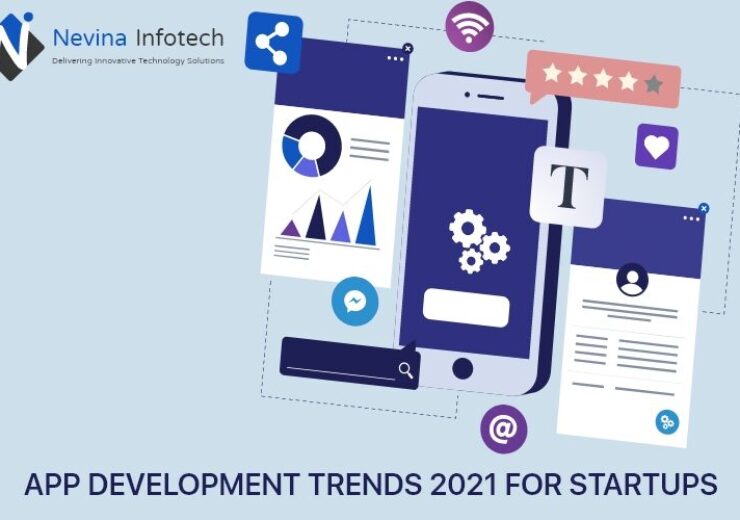Tools and Technologies Used For Cross-Platform Development in 2023

Cross-platform app development means creating a software application in such a way that it becomes compatible with multiple operating systems. The creation of these apps can work with multiple types of platforms and operating environments. Cross-platform apps are platform independent and can run on any operating environments
In general, cross-platform is used across different parts of tech industries in many ways. The main focus while developing cross-platform apps or software is to produce such software which will work in multiple digital environments, selling it to a large number of audiences.
Cross-platform app development, regarded as the most popular software development, basically means developing a single application which will run on various operating systems rather than developing it for different app versions for each platform.
Cross platform app development
With the increasing demand for tech in today’s changing world, competition among businesses has also increased. Businesses are counting on a wide audience base. But the main concern about this is the budgeting for investing in the best technology at the right time. Developers have to adopt the latest technologies without investing much in them.
There are many reasons why it has become very popular, and has become an alternative to traditional and native app development because of the number of differences between Cross-platform and native apps development.
Native apps prove too expensive because of their single platform working. And to resolve this Cross-platform apps have been proven as one of the best solutions to help business companies maintain their presence on multiple platforms.
Technologies and frameworks used in cross-platform app development:
Traditionally, developers develop separate apps so that they can run on different devices and operating systems. But with the help of cross-app development tools, this traditional method has enhanced the way of developing apps.
By using Cross-platform app development tools, developers create apps in such a way that they can run on any platform with one-time coding, running on multiple platforms with few changes..
Flutter:
An open-source mobile UI framework, used for developing iOS and Android-friendly apps. Flutter lets users build cross-platform apps with just one codebase by creating native interfaces across the platforms. With this approach, the app looks and functions exactly like a native app, and users get a high-performance app at half the price. Robust mobile apps are created with the help of Flutter via Dart language.
Advantages:
- Provides full native-like performance and 2D mobile support.
- Built-in custom widgets for enhancing the look of an app.
- Code development time is reduced.
Disadvantages:
- Apps developed by flutter framework are of massive file size.
- Offers limited set of libraries and tools
ReactNative:
React Native, a JavaScript-based mobile app framework that allows developers to build native-like apps that will run on any platform by just writing code at once. The code can also be reused. It makes it possible for the developers to customize the app to any given platform by just writing some parts of the code appropriate to that platform.
It allows for building an app for all devices running on various platforms. Moreover, it is possible to create platform-specific versions so that a single code can be easily shared across platforms, also sharing the same technology.
Advantages:
- It provides high performance with great user experience as long as you are not working with extremely complicated apps.
- It provides a good development environment with a single codebase.
Disadvantages:
- Updating ReactNative latest version is quite complicated in most cases
- It is hard to determine the user interface in reactnative-apps.
Cordova:
Apache Cordova is an open-source platform used for developing hybrid mobile apps using JavaScript, HTML, and CSS. It acts as a bridge between mobile devices and web applications. It runs the app in web view with additional native extensions and is effective for the back-end in app development.
Advantages :
- Cost-effective.
- Works on all platforms
Disadvantages :
- Difficult to achieve the same level of performance as that of the native apps.
- Some features are difficult to implement like camera access, gps.
Xamarin:
Xamarin is an open-source cross-platform framework that can develop applications for Android, iOS, Windows and more platforms. By using Xamarin, developers can reuse 90% of the code, giving businesses a massive advantage.
It utilizes Visual Studio, allowing developers to deploy complex mobile app development via C# and .net, integrated with top APIs.
Advantages :
- High performance with large community support.
- Automatic testing by TestCloud, supporting type checking.
Disadvantages :
- Not suitable for heavy graphics.
- Large size of app with low functionalities..
Ionic:
Ionic is one of the most notable and popular cross-platform app development frameworks developing a variety of mobile apps including enterprise apps, Progressive Web apps, and mobile and desktop apps.
It uses HTML, CSS, Javascript, and Angular allowing developers to create native-like apps with modern UI/UX elements.
Advantages :
- Fast development with reusable code.
- Numerous plugs are available.
Disadvantages :
- Applications debugging can be challenging.
- Native plugins are not so supportive.
PhoneGap:
PhoneGap is a cross-platform app development framework enabling developers to build mobile apps without any restriction on hardware. With PhoneGap, you can build cloud-based apps without the need for SDKs or compilers.
With PhoneGap, developers can leverage all the native features that Android has to offer, including cameras, contacts, geolocation, accelerometer, etc. It works via front-end technologies including CSS3, and HTML5 with standard language C# and C++.
Advantages :
- Highly interactive app development in a shorter period.
- More flexible, and secure with native function support.
Disadvantages :
- Fails when delivering game apps.
- Developers can develop apps at once, after that it starts charging a monthly fee.
SenchaTouch:
The basic application of Sencha Touch is to accelerate hardware techniques. Sencha Touch is a cross-platform app development framework with in-built Cordova integration. Large business app developments become easy with the help of Sencha. easier. Furthermore, it helps app developers create interactive native looking themes, which is why it is so popular among them. It creates fast and intuitive iOS and Android mobile apps via front-end languages and technologies.
Advantages :
- Provides effective data management on multiple platforms with reliable security.
- Provides an “infinite scrolling grid” feature for the developers for later retrieval.
Disadvantages :
- Native-look themes are limited.
- It takes a long time while developing an app from scratch.
Kivy :
Kivy is a multi-platform Python GUI development library on iOS, Android, Windows, OS X, and GNU/Linux. The core concept of Kivy allows developers to create an app once and deploy it across all devices, making code reuse and deployment. It enables quick and easy interaction design and prototyping for developers.
Advantage :
- Runs original code on all supported platforms and provides well-documented APIs.
- Helps in designing innovative user interfaces with multi-touch functionalities.
Disadvantages :
- Large installation package size.
- Somewhat lacks community suppose.
Unity:
Unity is a 3D cross-platform tool known for its graphic quality. It can be used to create 3D, 2D, virtual reality and augmented reality games with game development frameworks, supporting every game platform. It is adopted by several developers because of its in-app purchases, screen splash optimization and interactive technical support.
Advantages :
- Code reusability, easy to use with incredible graphic support.
- For monetizing games built-in solutions are available.
Disadvantages:
- The documentation is not existent or outdated.
- Sometimes restrict you for customization according to your requirement.
Benefits of cross-platform app development frameworks:
- App development cost reduction: During the developing process, many structural corporations and organizations have to assemble and invest heavily in multiple teams with diverse skill sets, leading them to commit substantial budgets to cover app development with different operating systems. Although we are obliged by cross-platform mobile app development, companies now need to invest just once to get their app developed. It not only takes less time but also reduces time spent on maintenance and updates.
- Maximum exposure to target audience: Maximum exposure to effectively target the audience Cross mobile app development is a platform where you are sure to expect maximum exposure to the target audience. Leveraging the entire cross-platform approach allows you to create an app as well as deploy it over different platforms which also include the web. Basically, the entire cross-platform is based on the concept of “writing once, running everywhere”.
- Easy maintenance and deployment: This platform offers developed apps including inevitable bug fixes as well as improvements. Cross-platform mobile app development makes it reliable and sprightly fastened not only to test but to deploy fixes and upgrades which is why it is preferred widely.
- Fast development process with reusable code: The best practice provided by Cross platform for any app developer is source code written on a single codebase. Developers reuse this code for developing a number of apps running on different platforms and deploy it, thus resulting in fast development.
- Software launches simultaneously on various platforms: Traditionally, developers need to develop several apps for running them on different platforms. But now the apps are built easily using cross-platform app development tools and technologies, so the company launches their product simultaneously to reach wide audiences.
- Easy integration with cloud: Because of cross-platform app compatibility, it takes advantage of various plugins that are integrated with clouds. Cross-platform integrates the single code with various plugins for enhancing the scalability and functionality of an app.
- Rapid and easy updates: Since the cross-platform apps are internet based so it becomes easy to update the app. We don’t need to download separate updates. The apps get automatically updated, which will impact positively and the customer always gets updated with the latest versions of apps..
Conclusion
In the past, complex coding was required for developing an app, spending a lot of time. But now with the help of frameworks and technologies, developing an app has become faster just by spending less time, money and resources.
In this changing world, cross-platforms play a crucial role in enhancing the way of developing apps and improving user satisfaction, making an amazing impression on developers worldwide. The cross-platform application has opened the doors for a number of possibilities with its everlasting features.




